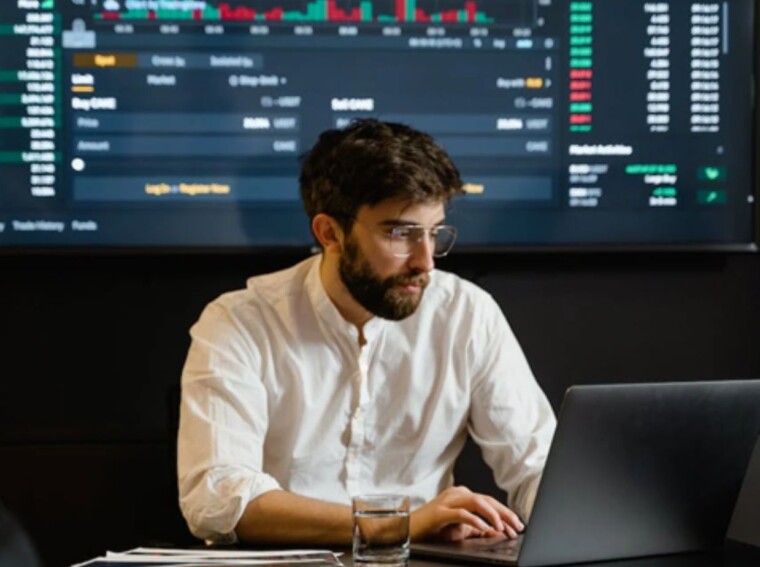Join us as we uncover the fascinating history behind the meteoric rise of online forex brokers, from the humble beginnings of electronic trading to the global, 24-hour marketplace we navigate today.
In today’s fast-paced financial landscape, online forex brokers are the bedrock of modern currency trading.
Nowadays, you can just go to a website and trade within minutes, like on the following link: justmarkets.info/vi.
These digital platforms have not only redefined the way we engage with the foreign exchange market but have also improved access to it.
Early Days of Forex Trading
In the early days of forex trading, well before the advent of the Internet, the foreign exchange market primarily operated through traditional financial institutions, such as banks and multinational corporations.
These institutions engaged in forex transactions to facilitate international trade and manage currency risks.
Manual Trading Methods
Trading in this era was predominantly a manual process carried out via telephone or face-to-face communication between banks and major financial institutions.
Brokers often facilitated these transactions and played a central role in connecting buyers and sellers in the forex market.
Limitations and Exclusivity
Forex trading during this period was characterized by limitations, including fixed trading hours, geographical constraints, and exclusive access limited to financial giants.
The absence of technology hindered more minor participants from entering the market, as trading required substantial capital and expertise.
Emergence of Online Forex Brokers
The late 1990s and early 2000s marked a pivotal era in forex trading, as the internet revolutionized financial markets.
During this period, online forex brokers emerged, transforming the industry from a primarily institutional and exclusive domain into a more accessible and democratic marketplace for retail traders.
The Internet Revolution
The advent of the internet played a central role in reshaping forex trading.

With the World Wide Web, investors accessed real-time market data, news, and trading platforms from the comfort of their homes.
This accessibility democratized trading, breaking down geographic barriers and opening the door for individual investors.
Pioneers of Online Forex Brokerage
Several pioneering firms paved the way for online forex brokers.
Companies like Gain Capital and OANDA were among the first to offer online forex trading services to retail clients.
These platforms provided traders with user-friendly interfaces, real-time price quotes, and access to various currency pairs.
The Rise of User-Friendly Trading Platforms
User-friendly trading platforms were instrumental in the success of online forex brokers.
These platforms, such as MetaTrader and cTrader, offered intuitive interfaces, advanced charting tools, and automated trading capabilities.
Traders could execute orders with a click of a button, making the process more efficient and accessible.
Market Liquidity and Leverage
Online forex brokers tapped into the deep liquidity of the forex market, offering retail traders the opportunity to participate in the world’s largest financial market.
Furthermore, brokers often provided leverage, allowing traders to control more significant positions with smaller capital. This feature amplified profit potential but also increased risk.
Global Access and 24-Hour Trading
Online brokers transcended geographic borders, enabling traders from diverse regions to participate in the forex market.
With the forex market operating 24 hours a day, five days a week, traders could engage in currency trading at their convenience, whether in New York, London, Tokyo, or elsewhere.
Challenges and Scandals
The rise of online forex brokers brought transformative change to the trading landscape, but not without its share of challenges and scandals.

As these platforms increased, they became vulnerable to issues that tested the industry’s integrity and resilience.
Regulatory Oversight and Compliance
Forex markets have faced persistent challenges related to regulatory oversight—the absence of consistent global regulation allowed for the proliferation of unscrupulous brokers engaged in fraudulent activities.
Traders often faced difficulties in seeking redress for grievances due to the decentralized nature of the market.
Broker Misconduct and Unfair Practices
Broker misconduct and unfair practices have emerged throughout the industry’s history.
Some brokers manipulated prices, executed orders unfairly, or provided false information to clients. These actions eroded trust among traders and the public.
High-Profile Scandals
Notable high-profile scandals, such as the Swiss Franc crisis in 2015, shook the forex market.
Traders and brokers suffered substantial losses, leading to legal disputes and regulatory scrutiny. These events exposed vulnerabilities in risk management and market stability.
What Is Next For Forex?
While challenges and scandals have tested the forex industry, they have also spurred positive change.
Stricter regulations and improved industry standards aim to create a safer trading environment.
Traders are encouraged to conduct thorough due diligence and choose reputable brokers, contributing to a more reliable and secure trading ecosystem.
Conclusion
In tracking the remarkable journey from the manual methods of early forex trading to the advent of online forex brokers, we’ve witnessed a profound transformation in the financial landscape.
The Internet revolution democratized access, opening the gates to a diverse spectrum of traders.
Yet, this journey has not been without its challenges and scandals, prompting industry-wide reforms.
As we look to the future, forex trading remains a dynamic realm, continually shaped by evolving technology, robust regulations, and the collective pursuit of a safer and more accessible trading environment.


